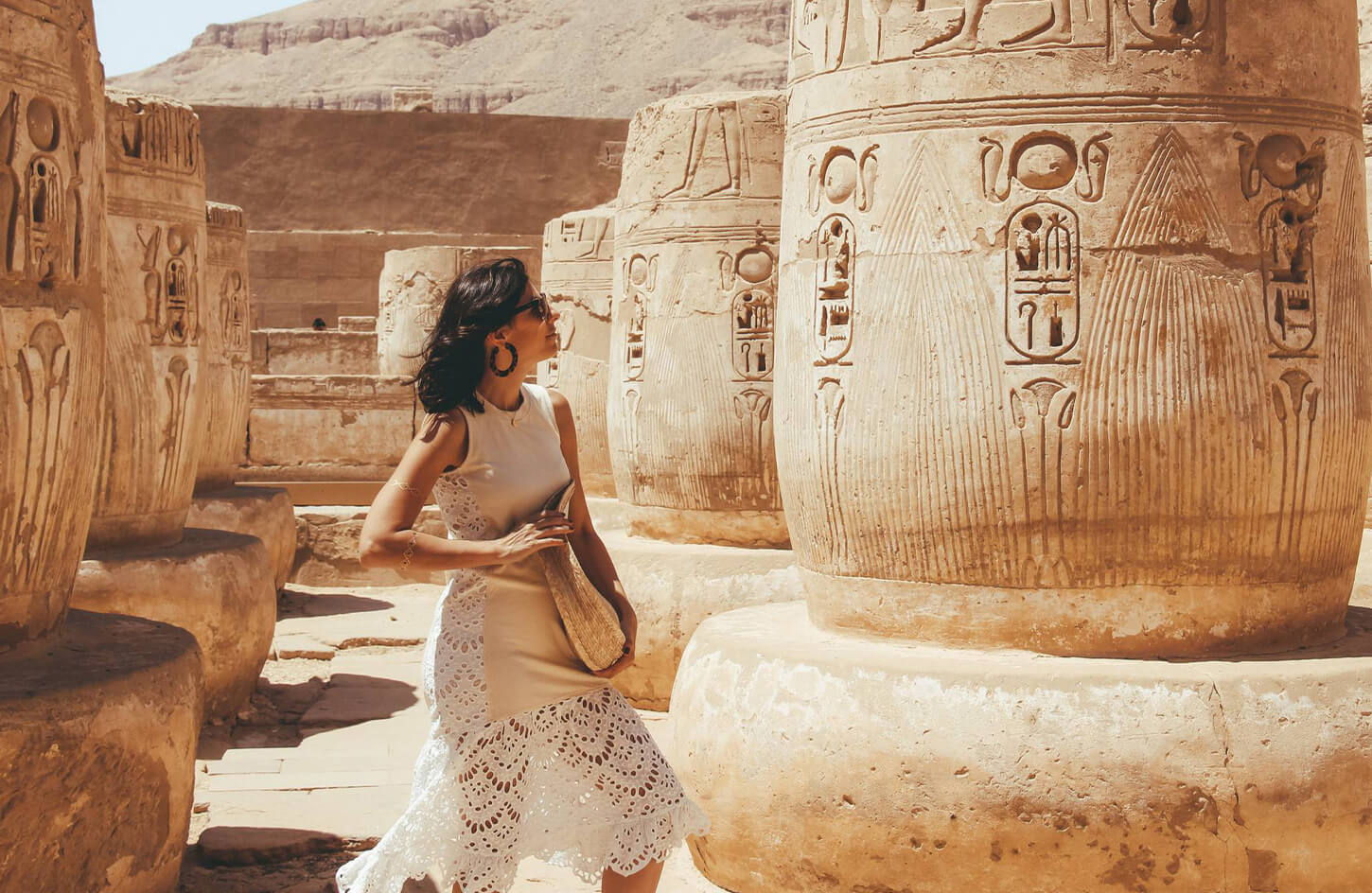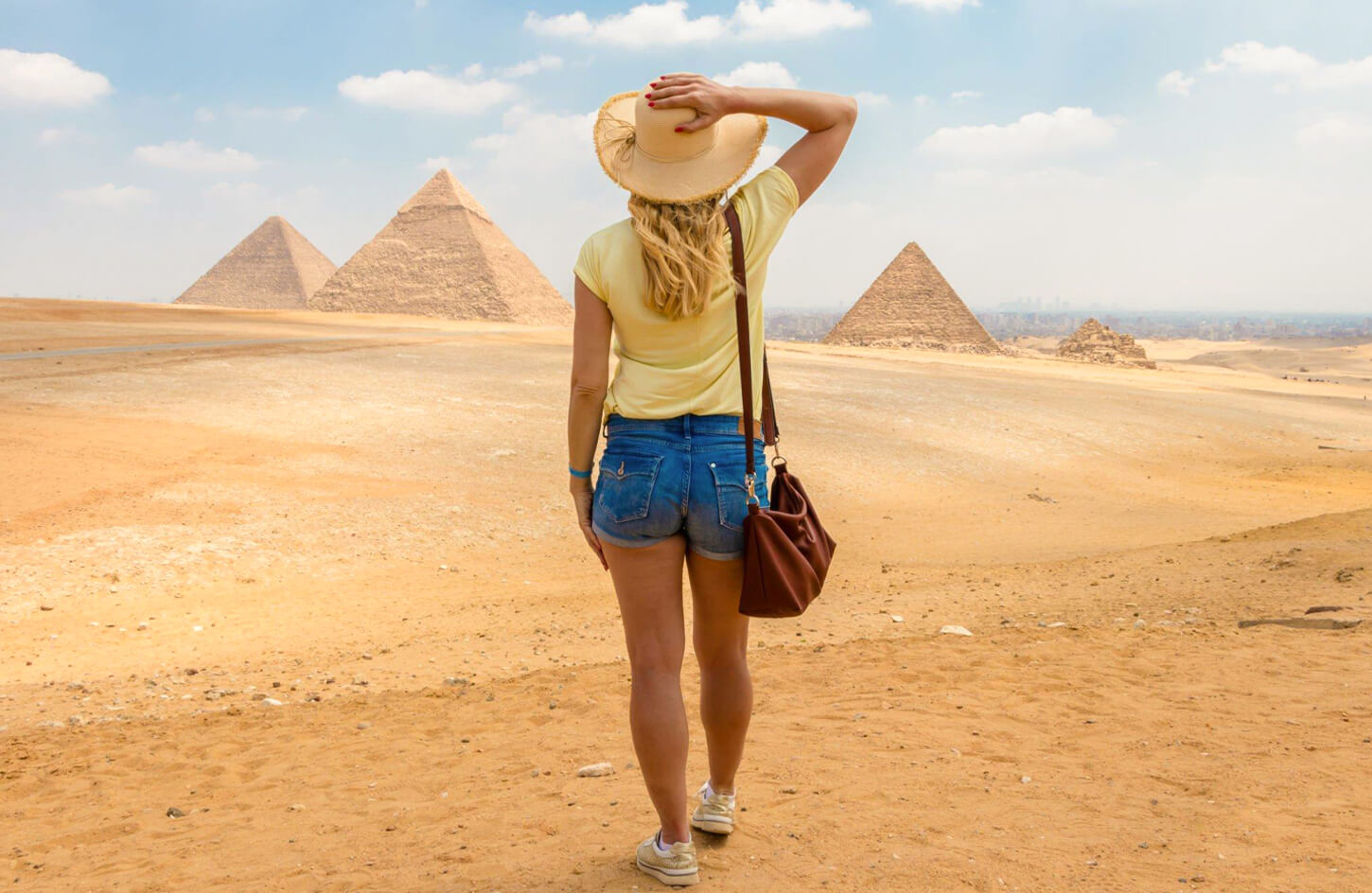Ever wondered how to see Egypt’s ancient wonders without missing a thing? Visa fees are as low as $25, and the summer heat can hit 109°F (43°C). This guide is your key to making your trip unforgettable. It covers everything from the Pyramids of Giza to the Nile’s flow, helping you enjoy every moment.
Imagine sipping mint tea under the desert sky or haggling for spices in a souk. Egypt’s mix of history and hospitality is waiting for you. With smart planning, your trip will be amazing. Learn how to understand local customs, save money, and find hidden spots like Saqqara’s pyramids.
This guide helps you balance wonder with wisdom. So, every sunrise over the Nile will feel like the start of an epic adventure.
Egypt Travel Tips for First-Time Visitors: Your Complete Guide
Planning your first trip to Egypt? This guide shares insider tips for visiting Egypt to help you explore ancient wonders and modern life. Egypt mixes history and hospitality in a unique way. Your trip will be filled with unforgettable moments, but being prepared is essential.
Choose the right season for your visit. The best Egypt travel tips for first-time visitors suggest going from November to March. The weather is mild during this time. Summer can be very hot, while winter nights can get chilly.
Pack layers for your trip. This way, you can adjust to the changing temperatures in Cairo and Luxor. The desert evenings can be cool, even in the summer.
Before you go, learn about visa requirements. Most travelers need a visa, which costs $25 USD. If you’re staying in Sinai’s resorts for less than 15 days, you won’t need a visa.
Always carry a copy of your passport. Security is strict at places like the Pyramids. But, friendly tourist police are there to ensure your safety.
Travel light on cash but still carry some. Egyptian pounds are the local currency, but US dollars are accepted in some places. ATMs are common in cities. Carry small bills for markets.
Tipping is a big part of the culture. Leave 10% in restaurants, $25/day for guides, and a few pounds for street vendors. Saying “shukran” (thank you) after each tip shows your appreciation.
Getting around is easy. Domestic flights with EgyptAir are reliable for trips between Cairo, Luxor, and Aswan. But, driving is not recommended due to high accident rates. Use private drivers or buses for trips between cities.
Be ready for cultural differences. Haggling is common in markets, but keep it friendly. Dress modestly at religious sites like mosques. Always ask before taking photos of locals. A smile and a nod are appreciated.
Planning Your Egyptian Adventure: Essential Preparations
Begin by getting your visa for Egypt. A 30-day tourist visa is $25 at the border. But, an e-Visa online is safer. Make sure your passport is valid for at least six months.
Pack smart for Egypt’s weather. Summer is hot, and winter nights get chilly. Wear layers to stay comfortable.
Then, plan your trip to Egypt. Focus on Cairo, Luxor, and Aswan. This helps with traffic and time zones.
Book Nile cruises early. They often include visits to Abu Simbel and Philae Temple. You can also pre-book the Pyramids of Giza online.
Exchange some Egyptian Pounds at the airport. ATMs are common, but be careful at night. Remember to budget for camera permits at monuments.
Bring a reusable water bottle. Purified water costs about $1 for two liters. Check visa rules for camera equipment with lenses over 50mm.
Plan 6-12 months in advance for group tours. They make things easier. Independent travelers should download offline maps and save taxi numbers. Keep your visa and itinerary copies in different places. This way, your trip goes smoothly without stress.

Navigating Egyptian Culture: Customs and Etiquette
Respecting local customs is key to the best Egypt travel advice. Egypt’s culture centers on Islamic traditions. When visiting mosques, remove shoes and cover shoulders and knees. Women may want a headscarf as a sign of respect.
In public, keep interactions friendly but private. Public displays of affection are uncommon and may draw stares.
Learning a few Arabic phrases turns heads in a good way. Start with “marhaba” (hello) or “shukran” (thank you)—locals appreciate effort. If vendors or guides offer help, a small tip (10-15% of the cost) shows gratitude.
Always ask before snapping photos of people or historic sites; permission matters.
Dress modestly, even in hot weather. Loose linen shirts and long skirts or pants fit both comfort and respect. Revealing outfits in cities like Cairo might attract unwanted attention.
At markets, bargain politely but firmly decline persistent offers with a smile. Knowing when to say “la’a” (no) helps avoid pressure.
Remember these Egypt travel tips for first-time visitors: respect prayer times (shops close five times daily), carry bottled water (5 EGP per bottle), and greet elders first. These small gestures build bridges, making every interaction smoother. Culture here is as vibrant as the pyramids—explore respectfully, and you’ll uncover deeper connections.
Getting Around: Transportation Options in Egypt
Exploring top Egypt travel destinations like Cairo, Luxor, and Aswan requires the right transport. Book places to stay near metro stations or major sites to save time. Cairo’s metro is fast and has women-only carriages for safety.
Metered white taxis and Uber are good for short trips. Buses like route 400 to Cairo’s center cost USD 0.10 and run every hour.
For longer trips, domestic flights are quick. A flight from Cairo to Luxor takes 1 hour, much faster than the 10-hour train ride. Trains are cheaper but slower.
Overnight sleeper trains connect Cairo, Luxor, and Aswan. Buses reach remote areas like the Western Desert oases via West & Mid Delta Bus Company. Microbuses fill up before they leave.
River cruises between Luxor and Aswan are part of the adventure. Three-night trips on Nile cruisers like the M/S Amarco offer scenic views. Felucca sailboats near Aswan offer short, breezy trips upriver.
When renting cars, choose places with clear routes. Check for accessibility upgrades if needed.
Follow best Egypt travel advice by researching schedules. Buses run from 5 AM–11 PM, and trains often book quickly. Always confirm fare prices before boarding. This mix of options makes moving between ancient sites and modern cities smooth and enjoyable.
Must-See Ancient Wonders and Attractions
Exploring Egypt’s ancient wonders means seeing the must-see attractions in Egypt that show its rich history. Start at the Pyramids of Giza, where the Great Sphinx stands guard. You can’t enter the Great Pyramid, but the nearby Saqqara Step Pyramids have accessible tomb passages.
Don’t miss the Egyptian Museum in Cairo. It houses treasures like Tutankhamun’s golden mask.
In Luxor, the Karnak Temple’s towering columns are breathtaking, best seen at sunset. The Valley of the Kings lets you visit three tombs. Choose Tutankhamun’s glittering burial chamber or Seti I’s intricate wall art.
Across the Nile, Hatshepsut’s temple stands dramatically from the cliffs. For grandeur, the Abu Simbel temples’ colossal statues of Ramesses II await. You can reach them via short flights from Aswan.
Aswan’s Philae Temple, moved to save it from rising Nile waters, shows Ptolemaic elegance. The Temple of Kom Ombo’s surgical tools carvings are unique. Alexandria’s Roman theater and the upcoming Grand Egyptian Museum near Giza offer deeper history insights.
Follow these Egypt sightseeing recommendations to see both famous sites and hidden gems. This way, your journey will truly capture the essence of ancient Egypt.
Beyond the Pyramids: Hidden Gems Worth Exploring
Egypt has many top Egypt travel destinations that are not well-known. After seeing Cairo’s famous sights, visit Alexandria. This city by the Mediterranean has old buildings and places like the Bibliotheca Alexandrina and the Citadel of Qaitbay. It’s a short bus ride from Cairo and offers beautiful beaches and seafood.
Siwa Oasis is a peaceful place with Berber communities and palm groves. Camping in the desert under the stars is a unique experience. For diving, the Red Sea Coast is amazing, with places like Ras Mohammed National Park in Sharm El-Sheikh. It’s known for its colorful marine life, making it a favorite for snorkelers.
Explore the White Desert’s chalk formations or El Gouna’s resort town for a relaxing getaway. History fans will love Wadi Natrun’s monasteries and El Fayoum’s oasis. These places are less crowded and show Egypt’s varied landscapes.
Many people also go on Nile cruises or day trips from Luxor. These hidden spots add richness to your trip. Consider a trip to Alexandria or diving in the Red Sea to see more of Egypt’s beauty.
Staying Safe and Healthy Throughout Your Journey
Exploring Egypt? Egypt travel safety tips are crucial for a great trip. Always drink bottled or filtered water to avoid stomach problems. Choose safe places to eat and avoid street food carts.
Heatstroke is a risk, so wear light clothes and apply sunscreen often. This keeps you cool and protected.
Know the areas to avoid. The U.S. State Department warns against the Northern Sinai and Western Desert. In Cairo, watch out for pickpockets in crowded places.
Solo travelers, like women, might get unwanted attention. Use women-only metro cars and stay safe at night. If harassed, say you’ll call the police (126) or embassy (+202-2797-3300).
Carry DEET insect repellent to fight off mosquitoes. Don’t swim in freshwater lakes or canals because of schistosomiasis. For emergencies, cities like Cairo and Luxor have good hospitals. Make sure you have evacuation insurance.
Be careful driving at night because roads are dark. Use a first-aid kit with diarrhea meds and rehydration salts. Vaccines are important, but also use condoms and hand sanitizer with 60% alcohol.
Trust local guides to show you safe places. They know the best routes and services. Follow these tips to stay safe and enjoy Egypt’s beauty.

Budgeting for Your Egyptian Adventure
Getting the most out of Egypt means balancing dreams with practical spending. Start by planning your trip with a smart budget. Budget travelers can enjoy Egypt on $30–$35 daily. Luxury stays can cost $100+ per night.
Shared dorms start at $5/night, and street food meals are under $3. This makes Egypt one of the world’s most affordable places.
Accommodation ranges from hostels ($5–$8/night) to 5-star hotels ($100+). Budget hotels average $25–$50/night. Nile cruises like the 12-day journey from Cairo to Luxor start at $700.
For transport, trains from Cairo to Luxor cost $10. Buses via Go Bus average $10. Uber rides in Cairo range $2–$3. Public transport in Cairo is as low as $0.20 per ride.
Food is very affordable. A falafel sandwich costs $1, and a full street meal is $2. Mid-range restaurants start at $4, while luxury dining hits $12+.
Tipping is important: leave 5–10 EGP (under $1) for small services, 10–15% of your bill at restaurants, and $5–$10 for guides. Always carry small bills—Egypt’s cash-heavy economy relies on it.
Save with passes like the Cairo Pass ($100 grants 5-day access to 30+ sites) or the Luxor Pass ($100–$200). Students save 50% on museum entries. Opt for shared transport, negotiate souvenirs, and avoid peak-season rates. With these strategies, how to plan a trip to Egypt becomes a mix of smart choices and cultural respect.
Culinary Discoveries: What to Eat in Egypt
Egypt’s food is rich in history. Try koshari, a mix of rice, lentils, and pasta with crispy onions. Or, enjoy ful medames, a fava bean dish. Street carts offer ta’ameya, Egyptian falafel, and karkadeh tea.
For a real taste, visit El Prince in Cairo’s Imbaba. It’s famous for molokheya and liver dishes. Open from 4 p.m. to 4 a.m., it’s a spot to grab a seat without a reservation.
Enjoy Egyptian coffee or basbousa, a semolina cake, with your meal. Halal food is common, but vegetarian choices are rare. Ask for meat-free options. Don’t miss feteer meshaltet, a layered pastry, for breakfast.
Street food is cheap and tasty, but choose busy places. Use your right hand to eat, and bread is often used as a utensil. These tips will make your food journey in Egypt unforgettable.
Shopping and Souvenir Guide: What to Bring Home
Shopping in Egypt is a vibrant cultural experience. Insider tips suggest focusing on authentic crafts like papyrus scrolls, hand-painted ceramics, and handwoven textiles. Start at Khan el-Khalili, Cairo’s 500-year-old bazaar, for a wide variety of items.
Here, you can find spices from Luxor, silver jewelry from El Sagha, and alabaster carvings from Luxor’s artisan workshops. Egypt travel tips for first-time visitors say haggling is a must. Aim for 50% off initial prices in open-air markets but skip it in fixed-price stores.
Look for Egyptian cotton scarves at Wekalet El Balah or bold Nubian pottery in Aswan. Avoid tourist traps by seeking out local markets like the Tentmakers Bazaar for khayamiya textiles or the Citystars Mall for modern brands. Always check for certification on papyrus (real has visible fiber layers) and verify gold content with a certificate.
Remember: antiquities over 100 years old are illegal to export. Bring small bills for haggling and consider shipping larger items like brass lanterns via airport services. For spices, Luxor’s market offers 17% of the world’s dates alongside saffron and za’atar. Visit during Ramadan for special deals and enjoy evening shopping under Khan el-Khalili’s lantern-lit alleys.
Conclusion: Making the Most of Your First Egyptian Adventure
Traveling to Egypt for the first time? Start by getting your visa on arrival for $25 USD. Don’t forget to pack sunscreen and a reusable water bottle. Booking domestic flights between Cairo, Luxor, and Aswan saves time, best during cooler months (October to April).
Begin your journey with a pre-departure checklist:
- Confirm visa requirements and currency exchange rates (1 USD = 31 EGP).
- Carry copies of your passport and itinerary.
- Learn phrases like “shukran” (thank you) to connect with locals.
Egypt’s culture is all about hospitality. Expect warmth from guides and shopkeepers. Always ask permission before taking photos of people or sacred sites.
Balance planning with spontaneity. Discover hidden spots like the West Bank of Luxor’s tombs or Alexandria’s Bibliotheca Alexandrina. Stay hydrated in the summer’s heat, and dress modestly at mosques and villages. Tipping 5–10% shows appreciation, and the Grand Egyptian Museum’s 2023 opening adds a modern twist to ancient wonders.
Whether enjoying koshary in Cairo or a Nile River cruise, your trip will mix history with human connection. With these tips, you’ll handle security, budget wisely with the Cairo Pass, and return with amazing stories. Adventure is waiting—bring your curiosity and an open heart.
Discover more of our related articles:
